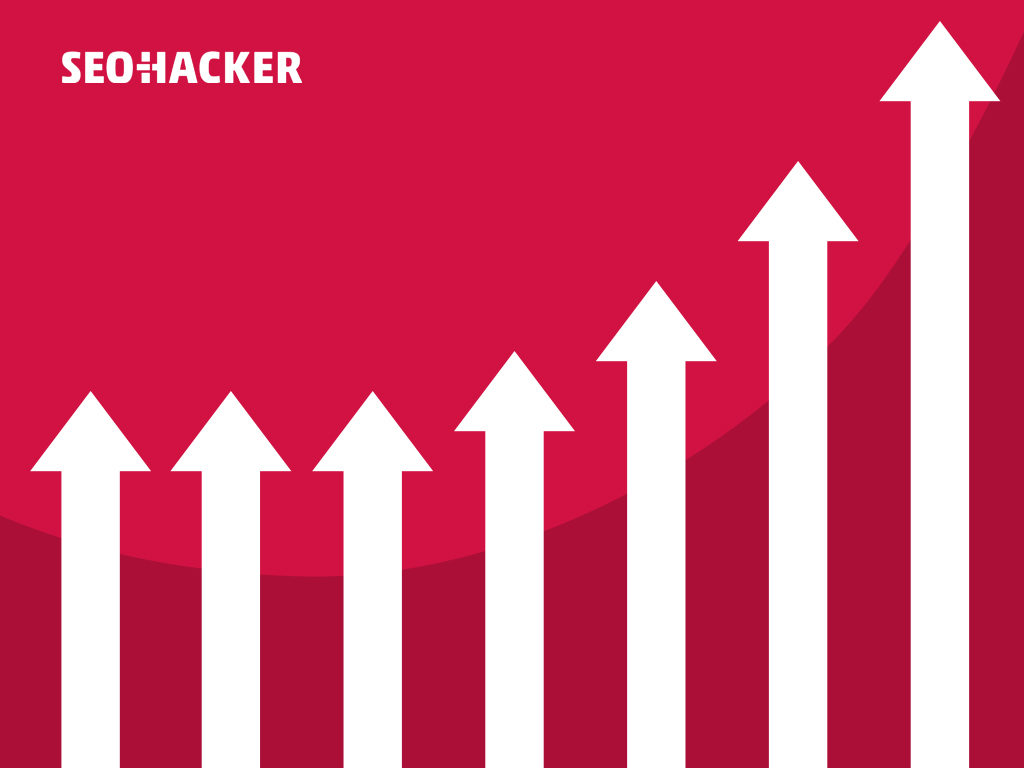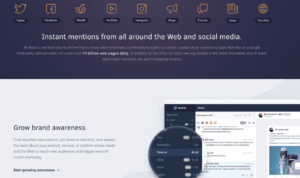Best SEO Tools to Increase Website Traffic – Best Tools to Increase Website Traffic sets the stage for this comprehensive exploration of essential tools that can elevate your website’s visibility in the crowded online space. With the right tools, you can effectively analyze, optimize, and enhance your site’s performance, ultimately driving more traffic and engagement. From research to link building and analytical insights, these tools are designed to empower you on your journey to mastering .
In this discussion, we will delve into the characteristics that define effective tools, highlight some of the most popular options available, and explore their unique features and functionalities. Whether you’re a beginner or an experienced marketer, understanding how these tools work will be crucial in implementing successful strategies.
Overview of Tools
tools have become indispensable for anyone looking to enhance their online presence. These tools are designed to help website owners, marketers, and businesses optimize their content and improve their visibility on search engines. By utilizing the right tools, users can gain valuable insights into their website’s performance, identify opportunities for improvement, and ultimately increase their traffic.The role of tools in boosting website visibility is multifaceted.
They facilitate research, track rankings, analyze competitors, and provide insights into user behavior. By leveraging these tools, users can make data-driven decisions that can lead to improved search engine rankings. Effective tools often combine various functionalities, allowing for a comprehensive approach to search engine optimization.
Essential Characteristics of Effective Tools
When evaluating tools, several essential characteristics should be considered to ensure their effectiveness. These features not only enhance the user experience but also maximize the potential for boosting website traffic.
- User-Friendly Interface: A straightforward, intuitive design allows users of all skill levels to navigate and utilize the tool effectively.
- Comprehensive Analysis: The ability to perform thorough research, including search volume and competition metrics, is crucial for driving targeted traffic.
- Competitor Analysis: Tools that offer insights into competitor performance can help users identify gaps and opportunities in their own strategies.
- Performance Tracking: tools that provide regular reporting on website performance, including rankings and traffic changes, are vital for ongoing optimization.
- Integration Capabilities: The ability to integrate with other marketing tools enhances the overall effectiveness and efficiency of strategies.
The combination of these characteristics enables users to not only optimize their current strategies but also adapt to changes in search engine algorithms and user behavior.
Common Features Found in Top Tools
Top tools come equipped with various features designed to cater to the diverse needs of users. Understanding these features can help in selecting the right tool for effective website optimization.
- Site Audits: Regular site audits help identify technical issues, such as broken links and slow loading speeds, that could hinder search engine performance.
- Backlink Analysis: Monitoring backlinks allows users to assess their site’s authority and develop strategies for acquiring high-quality links.
- Content Optimization Suggestions: Advanced tools provide real-time recommendations for optimizing content based on current best practices.
- Social Media Integration: Some tools help in analyzing social media performance and its impact on , providing a holistic view of online presence.
- Mobile Optimization Analysis: With the increasing importance of mobile-friendly websites, features that assess mobile responsiveness are critical.
These features collectively empower users to create effective strategies that not only increase visibility but also drive meaningful engagement and conversions through improved website traffic.
Popular Tools
In the ever-evolving landscape of digital marketing, utilizing the right tools can significantly enhance your website’s visibility and traffic. tools are essential for analyzing performance, identifying opportunities, and tracking progress. They provide invaluable insights that can help businesses stay competitive and optimize their online presence effectively.There are numerous tools available, each offering unique features tailored for different needs.
Below is a curated list of some of the most widely used tools in the industry, along with their primary functionalities.
Widely Used Tools, Best SEO Tools to Increase Website Traffic
The following tools are recognized for their robust capabilities and user-friendly interfaces, making them favorites among professionals.
- SEMrush: A comprehensive suite that offers research, site audit, traffic analysis, and competitor tracking. Its multifaceted platform helps marketers strategize effectively by providing insights on PPC, social media, and content marketing.
- Ahrefs: Renowned for its backlink analysis, Ahrefs boasts a vast index of live backlinks and data. This tool is particularly beneficial for understanding link building opportunities and monitoring rankings over time.
- Moz: Focused on providing actionable insights, Moz features a user-friendly interface with tools for research, rank tracking, and on-page optimization. Its community-driven resources are invaluable for both beginners and seasoned experts.
- Google Analytics: While primarily a web analytics tool, it offers significant insights into website performance, user behavior, and traffic sources, making it pivotal for analysis.
- Yoast : A widely used WordPress plugin that helps optimize content for . It provides real-time analysis of content readability and optimization, ensuring that your posts are search-engine friendly.
Comparison of SEMrush, Ahrefs, and Moz
To understand how different tools stack up against each other, here’s a comparison of SEMrush, Ahrefs, and Moz, focusing on their core functionalities.
SEMrush excels in competitive analysis and offers a complete suite for digital marketing, while Ahrefs is unparalleled in backlink analysis. Moz, on the other hand, provides a user-friendly experience with solid and site tracking features.
| Feature | SEMrush | Ahrefs | Moz |
|---|---|---|---|
| Research | Yes | Yes | Yes |
| Site Audit | Yes | Yes | Yes |
| Backlink Analysis | Yes | Excellent | Good |
| Rank Tracking | Yes | Yes | Yes |
| Content Suggestions | Yes | No | Yes |
Pricing Options of Various Tools
Understanding the cost associated with these tools is crucial for budgeting and planning. Here’s a summary of the pricing options for the prominent tools mentioned.
| Tool | Pricing |
|---|---|
| SEMrush | Starts at $119.95/month |
| Ahrefs | Starts at $99/month |
| Moz | Starts at $99/month |
| Google Analytics | Free (with premium options available) |
| Yoast | Free (with premium options available starting at $89/year) |
Investing in the right tools is a vital step towards improving your website’s traffic and search engine visibility. Each tool brings its strengths to the table, making it essential to choose according to your specific needs and budget.
Research Tools
research is a fundamental aspect of that directly influences the ability of a website to attract organic traffic. By identifying the right s, businesses can better align their content with the search intentions of their target audience. This ensures that the content reaches the right people who are genuinely looking for the products or services offered, thereby driving more qualified traffic to the site.Understanding the best tools available for conducting research can significantly enhance this process.
Effective research tools allow users to discover new s, analyze competition, and track performance over time. This knowledge is crucial for optimizing content and improving search engine rankings.
Best Tools for Conducting Research
Various tools stand out in the realm of research, each offering unique features that can help marketers and website owners enhance their strategies. Here are some of the most effective tools available today:
- Google Planner: A free tool ideal for discovering s and seeing how a list of s might perform.
- Ahrefs s Explorer: A comprehensive tool that provides extensive suggestions, search volume, and difficulty ratings.
- SEMrush: This all-in-one tool offers research features alongside competitor analysis, making it easier to understand market trends.
- Ubersuggest: A user-friendly tool that provides suggestions along with content ideas and domain insights.
- KWFinder: Known for its simplicity, this tool offers suggestions and an easy way to assess difficulty.
- AnswerThePublic: This tool visualizes search queries and suggests topics based on the questions that users are asking online.
When using research tools, specific features can greatly enhance their effectiveness. Consider the following attributes that can maximize the value of your research efforts:
- Search Volume Data: Essential for assessing the popularity of a .
- Difficulty Score: Helps gauge how competitive a is, allowing for better targeting decisions.
- Competitor Analysis: Insights into which s competitors are targeting can inform your strategy.
- Long-Tail Suggestions: Finding longer, more specific phrases can lead to less competition and higher conversion rates.
- Content Ideas: Tools that provide topics or questions related to s can inspire content creation.
- Trends Over Time: Helps identify which s are gaining or losing popularity, aiding in timely content updates.
Investing time in research tools is crucial, as they empower marketers to not only understand user intent but also to optimize their content for better visibility and engagement.
On-Page Tools

On-page tools are essential for optimizing individual web pages to rank higher and earn more relevant traffic in search engines. These tools focus on various on-page factors, including content quality, HTML tags, meta descriptions, and URL structure. By enhancing these elements, website owners can significantly improve their visibility and user experience.On-page optimization tools can enhance content by providing insights into how well a webpage adheres to best practices.
They analyze key factors such as usage, readability, and meta tags, offering suggestions for improvements. Utilizing these tools helps to ensure that content is not only optimized for search engines but also engaging for users.
Examples of On-Page Tools
Several tools are widely recognized for analyzing on-page factors, each offering unique features to assist in optimization:
- Yoast : A popular WordPress plugin that evaluates content readability, density, and provides suggestions for meta descriptions and title tags.
- SEMrush: This all-in-one tool offers on-page checker features that analyze content against top-ranking competitors, highlighting areas for improvement.
- Ahrefs: Known for its extensive backlink analysis, Ahrefs also provides on-page analysis, including content structure and optimization suggestions.
- Moz Pro: Offers on-page optimization tools that help evaluate page performance, optimization, and link suggestions.
The effectiveness of on-page tools can be evaluated based on several criteria. These criteria ensure that the tools provide meaningful insights and actionable recommendations.
Criteria for Evaluating Effectiveness of On-Page Tools
When assessing the effectiveness of on-page tools, several key factors should be considered:
- Accuracy of Analysis: The tool should provide precise evaluations of on-page elements, ensuring the data reflects the current landscape.
- User-Friendly Interface: An effective tool should be easy to navigate, allowing users to quickly access and understand the information provided.
- Actionable Recommendations: The tool must not only identify issues but also offer practical suggestions for improving performance.
- Integration Capabilities: The ability to integrate with other tools and platforms enhances the utility of an on-page tool, facilitating a more comprehensive strategy.
- Regular Updates: is an ever-evolving field, so tools must be frequently updated to incorporate the latest algorithm changes and best practices.
Technical Tools
Technical plays a crucial role in enhancing a website’s performance and ensuring that it meets the standards set by search engines. It goes beyond just s and content; it encompasses the structure and foundation of your site. By optimizing the technical aspects, you improve your site’s speed, ensure it’s mobile-friendly, and make it easy for search engines to crawl and index your pages effectively.
This not only enhances user experience but also boosts your visibility in search results.
Importance of Technical Tools
To effectively manage and improve your site’s technical , utilizing the right tools is essential. These tools help identify issues that could hinder your website’s performance, enabling you to make informed decisions for improvements. Below is a selection of reputable tools that can assist in conducting thorough technical audits:
- Google Search Console: A free tool that helps monitor, maintain, and troubleshoot your site’s presence in Google Search results. It alerts you to any crawl errors, sitemap issues, and security problems.
- Screaming Frog Spider: A desktop program that crawls websites and provides insights on various elements such as broken links, redirects, and metadata. It’s particularly useful for auditing large sites.
- Ahrefs: Known primarily for its backlink analysis, Ahrefs also offers a robust site audit feature that evaluates your site’s health and helps identify issues.
- SEMrush: This all-in-one tool includes a site audit feature that scans your website and provides recommendations to improve its overall health.
- GTmetrix: Focused on website speed and performance, GTmetrix analyzes page load times and offers insights into areas for improvement.
Key Metrics Assessed by Technical Tools
A variety of metrics are critical when assessing your website’s technical performance. Understanding these metrics helps identify areas needing attention for better optimization. Here are key metrics that technical tools should assess:
- Page Load Time: The time taken for a page to fully load. Reducing load time is essential for improving user experience and decreasing bounce rates.
- Crawl Errors: Issues that prevent search engines from accessing your site. Monitoring crawl errors enables you to fix broken links and ensure all pages are indexed properly.
- Mobile-Friendliness: With an increasing number of users accessing sites via mobile devices, ensuring your site is mobile-friendly is vital for both user experience and ranking.
- HTTPS Status: Security is paramount; ensuring your site is served over HTTPS can improve trustworthiness and rankings.
- XML Sitemap Status: A proper XML sitemap helps search engines understand your site structure. Monitoring its status ensures all important pages are included and updated.
“Optimizing technical elements is like laying a strong foundation for a house; without it, the structure is bound to fail.”
Link Building Tools
Link building plays a pivotal role in enhancing a website’s authority and visibility. It involves acquiring hyperlinks from other websites to your own, effectively increasing your site’s credibility in the eyes of search engines. The more quality backlinks a website has, the higher it can rank in search results, making link building an essential strategy for improving organic traffic.Quality backlinks not only boost a site’s authority but also lead to increased referral traffic.
Search engines like Google consider backlinks as votes of confidence; when reputable sites link to yours, it signals trustworthiness and relevance. However, managing and tracking these links can be challenging without the right tools.
Effective Tools for Managing and Tracking Backlinks
Utilizing the right link building tools can streamline the process of acquiring and monitoring backlinks. Below are some effective tools that can help you manage your backlink strategy efficiently:
- Ahrefs: A comprehensive tool that provides a detailed analysis of backlinks and helps identify linking opportunities. Its Site Explorer feature allows users to explore how competitors earn their backlinks.
- SEMrush: This tool not only helps in tracking backlinks but also offers insights into competitors’ strategies, letting users find potential sites for link building.
- Moz Link Explorer: Offers an extensive backlink database to analyze link health and quality. It also provides metrics like Domain Authority to gauge the strength of linking domains.
- Majestic: Known for its extensive link index, Majestic provides unique metrics like Trust Flow and Citation Flow, which help assess the quality of backlinks.
- BuzzSumo: Effective for discovering content that’s performing well in terms of backlinks, BuzzSumo helps you identify influential authors and potential outreach opportunities.
For a more detailed view, here is a comparison chart of these link building tools, showcasing their unique features:
| Tool Name | Key Features | Best For |
|---|---|---|
| Ahrefs | Site Explorer, backlink analysis, competitor analysis | Comprehensive backlink research |
| SEMrush | Backlink tracking, competitor insights, tools | Holistic strategy |
| Moz Link Explorer | Domain Authority metrics, backlink analysis | Link quality assessment |
| Majestic | Trust Flow, Citation Flow metrics | Quality link evaluation |
| BuzzSumo | Content performance tracking, influencer identification | Content-based link building |
These tools provide a solid foundation for any link building strategy, allowing you to analyze, manage, and enhance your backlink profile effectively. Focusing on quality over quantity in your link building efforts will ultimately lead to better rankings and increased traffic.
Analytics and Reporting Tools
Analytics and reporting tools are crucial for understanding how well your strategies are performing. They provide insights into user behavior, traffic trends, and conversion metrics that can guide your optimization efforts. Without these tools, it would be challenging to gauge the effectiveness of your initiatives and make informed decisions.Google Analytics stands out as a leading analytics platform due to its robust features and integration capabilities.
It tracks website traffic, user engagement, and conversion rates, helping businesses to analyze their online presence. While Google Analytics is a powerful tool, several other platforms also offer unique functionalities that can complement your strategy. These tools may provide specialized reporting, more in-depth data analysis, or better integration with specific platforms.
Key Metrics for Reporting
Tracking the right metrics is vital for effective reporting. These metrics provide insights into your website’s performance and help identify areas for improvement. The following essential metrics should be monitored regularly:
Organic Traffic
Indicates the number of visitors arriving at your site through search engines.
Bounce Rate
Measures the percentage of visitors who leave the site after viewing only one page, helping assess content engagement.
Average Session Duration
Shows how long users stay on your site, providing insight into user interest and content effectiveness.
Pages per Session
Reflects the average number of pages viewed during a single session, indicating how well your site engages users.
Conversion Rate
Tracks the percentage of visitors completing desired actions, essential for evaluating the effectiveness of your efforts.
Rankings
Monitors the position of your target s in search engine results, helping track progress.
Backlinks
Indicates the number of inbound links to your site, which is crucial for assessing authority and credibility.Utilizing these metrics ensures a comprehensive understanding of your website’s performance, ultimately assisting in refining your strategies for improved traffic and engagement.
Content Optimization Tools
Content optimization plays a crucial role in enhancing website traffic by ensuring that the content is not only relevant and engaging but also aligned with search engine algorithms. By optimizing content, websites can improve their visibility in search results, attract more visitors, and retain user engagement longer, leading to better conversion rates.To effectively increase engagement metrics, various tools are available that specialize in content optimization.
These tools analyze content for readability, usage, and overall effectiveness, helping content creators refine their work to meet both user expectations and search engine requirements.
Tools for Content Optimization
Several tools stand out in the realm of content optimization, assisting in various aspects from analysis to readability scoring. Here’s a list of notable content optimization tools and their primary functions:
- Yoast : A popular WordPress plugin that provides real-time suggestions for improving on-page through optimization, readability checks, and metadata management.
- Surfer : This tool analyzes top-performing pages for specific s and provides guidelines on content structure, word count, and density to optimize content effectively.
- SEMrush Writing Assistant: This tool evaluates content for relevancy and readability by checking for optimal usage and offering suggestions based on top-ranking content.
- Grammarly: While primarily known for grammar checking, Grammarly also assesses tone and clarity, helping enhance the overall quality of the content, which can positively impact user engagement.
- ClearScope: An advanced content optimization tool that provides insights and competitor analysis, ensuring the content covers relevant topics comprehensively.
Utilizing content optimization tools effectively can significantly enhance engagement metrics. By incorporating suggestions from these tools, content creators can ensure their writing resonates with their target audience. For example, using Yoast , one can analyze the focus and adjust the content accordingly to improve search rankings. Additionally, ClearScope enables writers to identify related terms that should be included to enrich the content, ultimately leading to more informative and engaging articles.
“Optimized content is not just about s; it’s about delivering value to the reader while satisfying search engine algorithms.”
Incorporating these tools into the content creation process not only improves but also elevates the overall user experience, fostering a deeper connection with the audience and encouraging return visits.
Social Media Integration Tools
Social media has become an integral part of a comprehensive strategy. Its importance lies in the ability to drive traffic, enhance brand visibility, and engage with audiences directly. By integrating social media with efforts, businesses can leverage the vast reach of social platforms to improve their search rankings and overall online presence. Effective tools that bridge the gap between social media and strategies can streamline processes, optimize content sharing, and ultimately lead to increased website traffic.
These tools not only help schedule and publish posts but also allow for the analysis of social media metrics that provide insights into audience behavior and preferences.
Importance of Social Media for
Social media platforms serve as a valuable channel for sharing content and attracting potential visitors to a website. The following points highlight how social media can positively impact :
- Increased Visibility: Sharing content on social media increases its visibility, making it easier for users to discover and engage with it.
- Enhanced Brand Authority: A strong social media presence can enhance brand authority, making users more likely to trust and click on links to your website.
- Traffic Generation: Links shared on social media can drive substantial traffic to websites, which can influence search engine rankings.
- Content Distribution: Social media acts as a distribution platform, ensuring that content reaches a broader audience quickly.
- Engagement Metrics: Social signals, such as likes, shares, and comments, can indirectly influence by enhancing user engagement.
Tools for Social Media Integration
A variety of tools can help integrate social media strategies with initiatives, enhancing efficacy and tracking results. Here are some notable options:
- Hootsuite: This tool allows users to manage multiple social media accounts in one platform, schedule posts, and analyze performance metrics.
- Buffer: Buffer simplifies content sharing across various social media channels and provides analytics to measure engagement and traffic driven to your site.
- Sprout Social: A comprehensive tool that offers social media management along with analytics that help in understanding audience interactions and their effect on website traffic.
- Zapier: This automation tool connects social media applications with other platforms, enabling seamless content sharing and data transfer for better tracking.
- SocialBee: This tool specializes in content categorization, allowing users to schedule varied types of posts and analyze their performance to refine strategies.
Measuring Social Media Impact on Website Traffic
To effectively assess the impact of social media on website traffic, businesses need to utilize specific metrics and tools. Here are some methods to measure this impact:
- Google Analytics: By tracking referral traffic and user behavior from social media platforms, Google Analytics provides insights into how social media drives visitors to your site.
- UTM Parameters: Adding UTM parameters to social media links helps track the source of traffic in Google Analytics, providing detailed insights into which platforms perform best.
- Social Media Insights: Platforms like Facebook Insights and Twitter Analytics offer data on engagement rates, click-through rates, and audience demographics, all of which can inform strategies.
- Bitly: This link management tool allows for the shortening of URLs and tracking of click data, helping to analyze the performance of links shared on social media.
- Lead Generation Tracking: Measuring leads generated through social media campaigns can offer insights into how effectively social media is driving conversions and traffic.
Leveraging social media not only fosters community engagement but also plays a crucial role in enhancing performance by driving traffic and improving brand visibility.
Future Trends in Tools: Best SEO Tools To Increase Website Traffic
As the digital landscape continues to evolve, so too do the tools and techniques we use for Search Engine Optimization (). With the rapid advancement of technology, particularly in artificial intelligence and machine learning, tools are becoming more sophisticated, offering features that not only help optimize content but also predict trends and user behavior. Understanding these future trends can significantly enhance a website’s ability to capture and retain traffic.The integration of AI and machine learning into tools is reshaping how marketers approach optimization.
These technologies allow for more personalized user experiences and deeper insights into data analysis. By leveraging algorithms that can learn and adapt, businesses can tailor their strategies to meet the nuances of their audience’s preferences. This shift towards intelligent data analysis means tools are not only reactive but also proactive in predicting outcomes and recommending strategies.
Role of AI and Machine Learning in Tools
AI and machine learning are becoming pivotal in the landscape, driving innovations and improvements in various aspects of optimization. Their role can be distilled into several key areas that indicate the direction in which tools are headed.
- Predictive Analytics: AI tools can analyze vast amounts of data to predict trends, allowing marketers to adjust their strategies ahead of time.
- Content Generation: Machine learning can assist in creating high-quality, -friendly content through natural language processing technologies.
- User Intent Recognition: Understanding the user’s search intent becomes more accurate, enabling better-targeted content recommendations.
- Automated Reporting: Tools now generate real-time insights and reports, saving time and allowing marketers to focus on strategy rather than data collection.
- Enhanced Rank Tracking: AI can provide more nuanced tracking of rank fluctuations, helping marketers understand the impact of their efforts.
The application of AI in tools is not limited to these areas. As these technologies advance, they will likely bring even more transformative capabilities to the forefront of strategies.
Impact of Evolving Technologies on Strategies
The future of will be heavily influenced by emerging technologies such as voice search, mobile optimization, and augmented reality. Each of these advancements opens new avenues for optimization, requiring a shift in traditional strategies.
- Voice Search Optimization: With the rise of voice-activated devices, optimizing for natural language queries is becoming essential.
- Mobile-First Indexing: Google’s shift towards mobile-first indexing means that sites must be fully optimized for mobile devices to rank well.
- Augmented Reality (AR): Integrating AR experiences can enhance user engagement, requiring a new approach to content and optimization.
- Blockchain Technology: This technology can improve transparency and trust in practices, affecting link building and content authenticity.
- 5G Technology: Faster internet speeds will enhance user experiences, thereby influencing page load times and, consequently, strategies.
The convergence of these technologies with practices encourages marketers to remain agile and adaptive, ensuring they meet the evolving expectations of users and search engines alike. By staying ahead of these trends, businesses can position themselves for success in the increasingly competitive digital marketplace.






